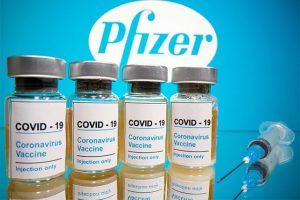Global research-based biopharmaceutical company, Pfizer Inc., has announced that its coronavirus vaccine trial analysis has proven to be 95% effective in preventing and curbing the spread of the COVID-19 virus, which has killed over 1.2 million people.
Pfizer Inc. is one of the largest pharmaceutical companies in the world. The firm operates under two main business segments: Pfizer Innovative Health (IH), which focuses on the development and sale of medicines and vaccines, and Pfizer Essential Health (EH), which focuses on branded generics and biosimilars.
The company has announced that the final analysis for their late-stage vaccine trial for the COVID-19 virus, SARS CoV-2, has proven to be 95% effective in preventing and curbing the spread of the pandemic, with no serious safety concerns.
The announcement was made earlier this month, making Pfizer the first to announce a positive result from a late-stage vaccine trial since the pandemic began.
The vaccine developed by Pfizer alongside BioNTech, a German drug maker, was tested on trial volunteers who had no prior case of coronavirus infection.
This is a significant development for the world at large, which has been struggling under lockdowns and social distancing measures since Q1 2020. The company is seeking an Emergency Use Authorization (EUA) from the Food and Drug Administration in order to begin distribution of the vaccine as soon as possible.
According to Kathrin Jansen, Senior Vice President and the Head of Vaccine Research and Development at Pfizer, the analysis of the vaccine's effectiveness at a time like this is a historical moment.
"This was a devastating situation, a pandemic, and we have embarked on a path and a goal that nobody has ever achieved – to come up with a vaccine within a year," she said.
The announcement comes after a low-cost, rapid coronavirus diagnostic, developed by researchers at the University of Oxford, has been set to screen plane passengers at major international airports in London and Hong Kong.
Being able to quickly and cheaply diagnose those with the virus will aid in expediting the vaccination of those who haven't been infected and the isolating of those with the virus.
Until this large-scale inoculation becomes a reality, populations will have to continue adhering to their respective governmental guidelines. With these reports on the vaccine's effectiveness, however, there is new hope that life will soon return to normal, especially since Pfizer expects to have manufactured enough doses to immunize 15 million to 20 million people by the end of the year.























